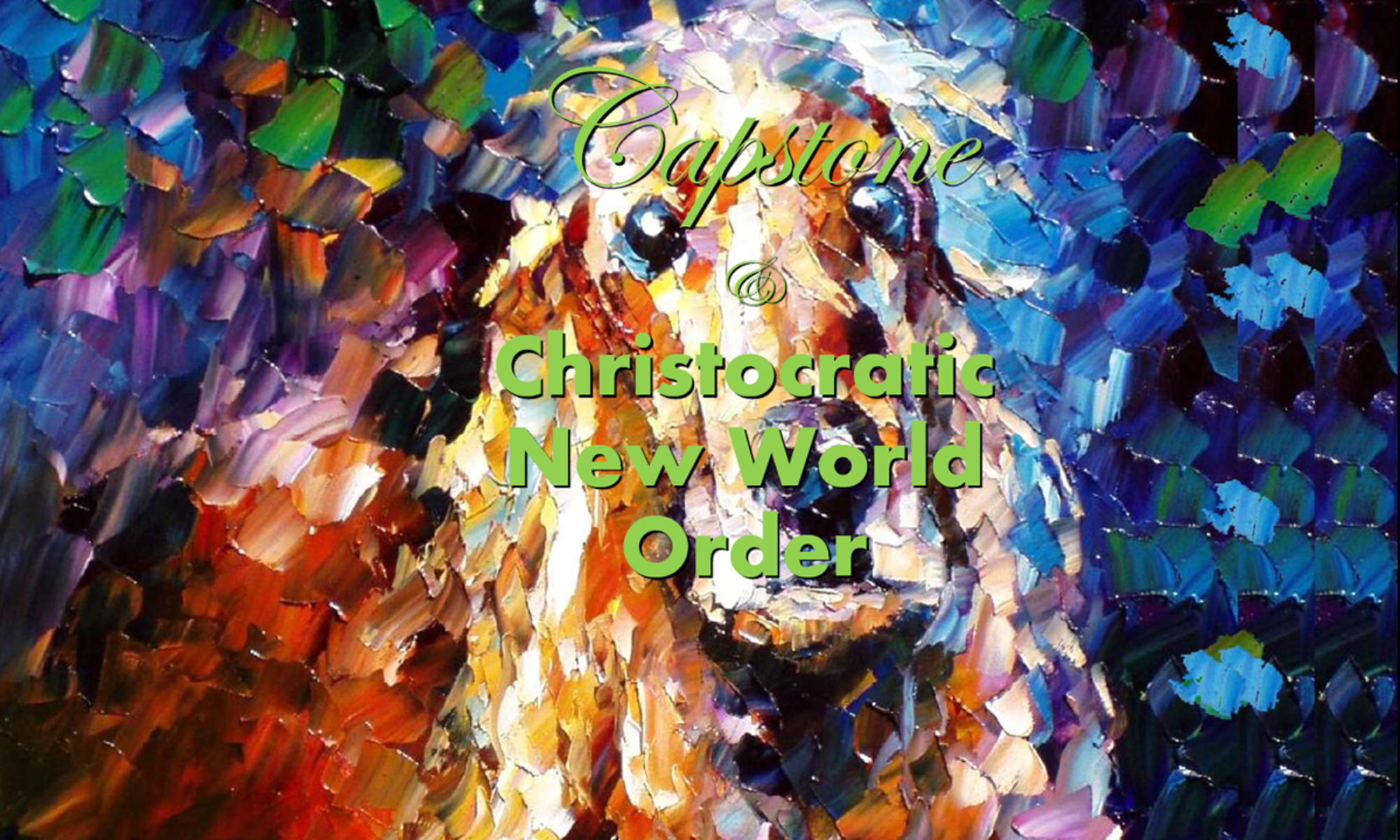Not a mere layman’s perspective!
Improving on the present
The following two presentations by a university professor help us understand the reasons for the status quo prevailing in the world-at-large.
The question to ask ourselves is: Are there demerits in the status quo that we can do away with while designing Christocracy?
In the globalized society of Christocracy a homestead program similar to the one that was in the United States may be implemented as a recompense or refuge to flee to for those in the laboring nations of the global economy. Workers can begin to work in leisure as it was in the Garden of Eden and actually enjoy the products, services, farms and the households they build.
With e-governance, Christocracy can obviate the need for a bloated public sector or a huge government bureaucracy, while all the time obtaining global synergistic economy and all the other benefits that come with it.
As to the question: Who governs in Christocracy?
Answer: The organized Bride–Remnant Overcomers (the Chosen) who have a vital relationship with the indwelling Christ.
An insight into the kingdom
Bill Bradford of Good News magazine wrote in the article “The Real Gospel …”
Entering the Kingdom
When Jesus came preaching the Kingdom of God, He said it was “at hand” and commanded people to repent and believe the good news about it (Mark 1:14, 15).
His kingdom is something we must enter (Mark 10:23, 25). Jesus warned of obstacles that can prevent our entrance into the Kingdom (Matthew 5:20; 19:23-25; Mark 9:47; Luke 18:17; John 3:5).
Jesus was at that time inviting people to repent so they could enter the Kingdom of God (Mark 1:15). His parables described what the Kingdom is, when it would come and how a person could enter it, and He clarified the requirements for and obstacles to entering it.
When does a person enter the Kingdom of God? Upon conversion, Christians become children of God and heirs of the kingdom (Romans 8:16, 17). But they will not inherit the kingdom until the kingdom comes. Paul explains: “Now this I say, brethren, that flesh and blood cannot inherit the kingdom of God; nor does corruption inherit incorruption. Behold, I tell you a mystery: We shall not all sleep, but we shall all be changed-in a moment, in the twinkling of an eye, at the last trumpet. For the trumpet will sound, and the dead will be raised incorruptible, and we shall be changed” (1 Corinthians 15:50-52).
Many people stop reading after the first four verses of this chapter, thinking they describe the entirety of the gospel Paul preached. But, by continuing to read the chapter, we see clearly that there is much more to the story. Paul goes on to explain more about the resurrection from the dead and entrance into the Kingdom of God. We “inherit,” or enter, that kingdom “at the last trumpet” (verse 52), the great blast that signals Christ’s return to rule the earth forever (Revelation 11:15).
Salvation through Jesus’ life, death and resurrection is indeed a part of the gospel message, but it is not exclusively (as many assume) the gospel message. Jesus Christ died, was buried and was resurrected (1 Corinthians 15:1-4) for a reason: so we could have everlasting life in the Kingdom of God (John 3:3, 5, 16).
We can accept Jesus’ command to repent and believe this gospel message. We can turn to God for forgiveness and reconciliation through Jesus Christ and begin to live by the laws of the Kingdom of God as taught by Jesus Christ. Those who refuse to live by God’s holy laws will be refused entrance into the Kingdom of God and eternal life (1 Corinthians 6:9, 10; Galatians 5:19-21; Ephesians 5:5).
Entering the Kingdom of God is synonymous with salvation. Thus, without understanding what the Kingdom of God is, we don’t understand what salvation is.
That is an awesome insight into the truth. But there is more to it, i believe.
The “last trumpet” that is spoken of i believe, pertains to the voice of any evangelist who finally consummates the new birth of a particular believer, which results in the person following up with a testimony in the waters of Baptism. In other words the last trumpet is perhaps not common to all. As i have written in the Be Born Again! article, baptism is the first resurrection from the dead.
He then actually enters into the kingdom of heaven. Note that i no longer have a mortal body but rather an immortal body. It is a body that is destined for glory as long as i abide in Christ. And since Christ abides in me, it is no longer i who do the living but Christ who lives in me. As Christ works from within me with His love to take full control of me and my environment, the preconditioning in my body to sin begins to recede.
The “tent” that we live in is often mistaken for the”flesh and blood” that Paul talks about, the later of which he says will not inherit the kingdom of God. The flesh and blood refer to anything that is the product of one’s own self-righteousness be it status, knowledge, appearance, goods, services, etc, etc.
Now there is a microcosmic last trumpet and also a macrocosmic last trumpet, the later pertaining to the whole world or the remnant from the whole world. In other words all the nations who will listen to the last macrocosmic trumpet and who will frame laws around the will of God.
In the above quote note the underlined phrase: Those who refuse to live by God’s holy laws will be refused entrance into the Kingdom of God and eternal life (1 Corinthians 6:9, 10; Galatians 5:19-21; Ephesians 5:5).
The clear implication in light of what i have said about the trumpets is that the Kingdom of God is NOW!
“Those” meaning… individuals, families, organizations, business as well as nations who “do not live today by God’s holy laws will be refused entrance into the kingdom of God and eternal life!”
Vision of Paradise on Earth
(Please write to me by way of a comment so that i can give you the password to view the above presentations that are in the making)
On Paulson’s Blueprint for Regulatory Reform in the USA
In the remarks made by Henry Paulson in the month of March, he admits by saying: “The current system … can allow important regulatory matters to fall through the cracks.”
As i have said earlier in “Ushering in Theonomy and Global Paternalism” about Adam Smith’s self-regulatory proposal, Henry Paulson’s Self-Regulatory proposal too is broadly no different. It is not the answer to the crisis we face today at least not for the poor nations or for that matter small businesses. Today’s Financial markets have global scope and we need international regulation, be it financial or conduct. It is the developing nations which will suffer for not Ushering-in Theonomy and Global Paternalism in time, because capital and people will always be induced to move to the shores of the developed nations without regulation. If at all there is anyone who will stand to gain from Theonomy and Global Paternalism, it is the developing nations.
Here is an interesting comment by Dave Chapman on the “Blueprint” that appeared in the Herald Tribune:
“This document looks like an attempt to muddy the waters with a bogus proposal, in the hope that they can stall meaningful regulation until the crisis goes away”
or the threat from “Kingdom Now” proponents goes away.

